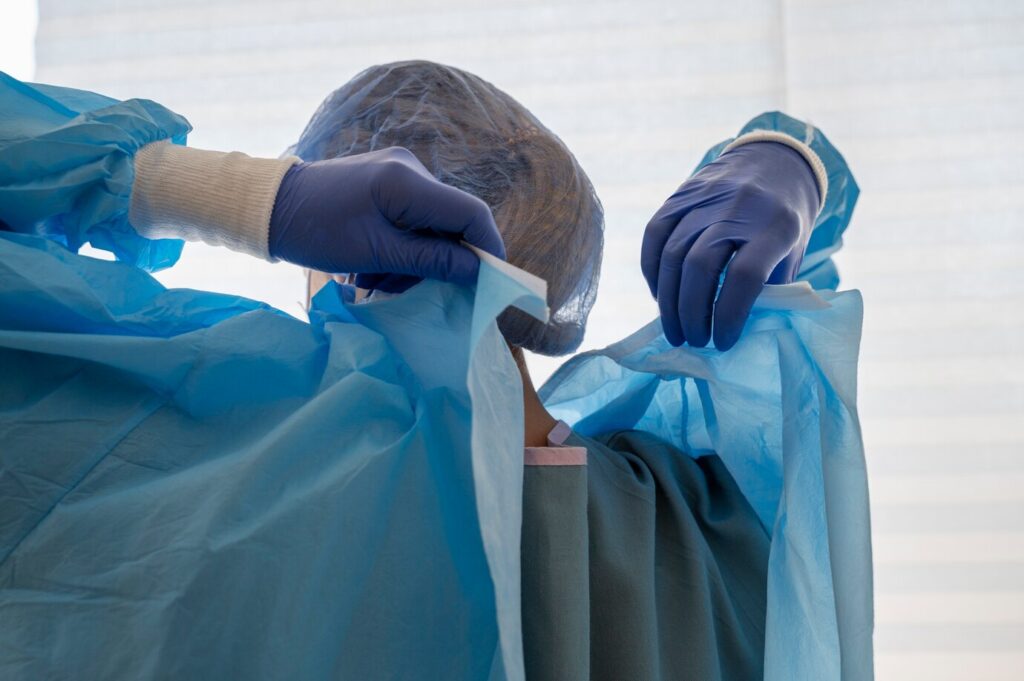Before any type of surgery, doctors and nurses use certain medical techniques to keep patients secure. Blood tests that occur before surgery are especially important in this process. With these tests, possible health issues that can hinder the surgery or the recovery period can be discovered. Sticking to the set of guidelines allows healthcare professionals to lower risks and get the best outcomes for patients.
Why Preoperative Blood Tests Are Important
Medical staff need to know all about a patient’s medical history before any surgical procedure. A blood test done before surgery detects anemia, infections, clotting problems, and dysfunction in the major organs. These examinations help the group of surgeons and anesthesiologists prepare and decide on how to take care of their patients safely during and after surgery.
Sometimes, if these checks are ignored, there can be complications such as a lot of bleeding, slow wound healing, or side effects from the anesthesia. Hence, conducting blood tests is crucial since it guarantees safety.
When Are Preoperative Blood Tests Needed?
It is not always necessary to run many blood tests before surgery on all patients. Doctors are recommended to customize their methods according to the patient’s age, medical history, current health, and what type of surgery being performed.
In some cases, healthy people having small, safe routines can skip detailed preoperative examinations. Unfortunately, some patients who have chronic diseases or are about to have major surgery often must go through a full range of preoperative tests.
Common Preoperative Blood Tests
1. Complete Blood Count (CBC)
The test supplies important findings on red blood cells, white blood cells, and platelets. It makes it possible to find out about anemia, infections, or blood clot problems. In particular, anemia can result in oxygen difficulties experienced during a procedure.
2. Coagulation Profile
These tests: PT, aPTT, and INR measure the clotting function of the blood. They are extra important for patients using anticoagulants or having liver diseases.
3. Blood Typing and Crossmatch
These tests: PT, aPTT, and INR measure the clotting function of the blood. They are extra important for patients using anticoagulants or having liver diseases.
4. Electrolyte Panel
Electrolytes checked during the test are sodium, potassium, chloride, and bicarbonate. Problems with heart or muscle function caused by imbalances have to be fixed before you receive anesthesia.
5. Renal Function Tests
These tests are done to measure kidney function. Defects in kidney function may change what type of anesthesia and drugs are used.
6. Liver Function Tests
Any issues with a person’s liver may make it harder for drugs to work and increase the risk of bleeding. Levels of bilirubin, ALT, AST, and alkaline phosphatase are measured in the testing procedure.
7. Blood Glucose
Diabetic people need to pay close attention to their blood sugar levels. Troubles with blood sugar levels after surgery can slow down wound healing and increase the chances of getting infections.
Age and Risk-Based Testing
The emphasis now is placed on not carrying out unnecessary medical tests. Too many blood tests cause medical costs to rise and can wrongly indicate the presence of health problems, so surgery can be postponed or canceled. It is better to use a more personal way of supporting in this case.
- Young, healthy adults undergoing minor surgery often don’t need any tests.
- Older adults or those with comorbidities like hypertension, diabetes, or cardiovascular disease usually require a baseline blood workup.
- Emergency surgeries may necessitate rapid testing to assess immediate risks.
Following Evidence-Based Guidelines
Examples of this include documents from NICE and ASA that explain the best practices on preoperative testing. Following these proposals helps doctors provide patients with better care by avoiding unnecessary tests and implementing the results effectively.
Key elements of these guidelines include:
- Considering the invasiveness and risk level of the planned surgery.
- Factoring in the patient’s overall health, medications, and recent lab results.
- Avoiding routine testing when it’s unlikely to impact surgical decisions.
Final Thoughts
Carrying out blood tests before surgery is essential in preparing for it. When fear-based medicine is set aside and clinical necessity alone guides decisions, these tests help ensure patient safety and support positive outcomes. If not necessary, diagnostic tests should be avoided to minimize what patients must endure, prevent delays, and use healthcare resources more efficiently.
Ideally, every patient’s care plan should be personalized, taking into account their medical history, the type of surgery, and individual risk level. Blood lab evaluations during the preparation phase are valuable for preoperative safety and reducing the risk of complications, especially when coordinated closely with surgeons, anesthetists, and primary care providers. For those searching for pre op clearance near me or needing pre op surgery clearance, this process ensures a thorough, patient-centered approach to surgical readiness.
To schedule your appointment with the highest standard of care and visit Sahara West Urgent Care, visit our website.
FAQs
1. What is preoperative (pre-op) clearance?
Preoperative clearance is a medical evaluation that ensures a patient is fit for surgery. It typically involves a physical exam, reviewing medical history, and performing necessary tests, like blood work, ECGs, or imaging, to assess surgical risk.
- Why are pre-op blood tests important before surgery?
Pre-op blood tests help detect hidden health issues such as anemia, infections, clotting disorders, or organ dysfunctions. Identifying these problems early reduces surgical risks and improves recovery outcomes.
- What are the most common preoperative blood tests?
Common tests include:
- Complete Blood Count (CBC)
- Coagulation Profile (PT, aPTT, INR)
- Electrolyte Panel
- Liver and Renal Function Tests
- Blood Glucose
- Blood Typing & Crossmatch (for major surgeries)
- Do I need blood tests for every type of surgery?
Not always. The need for blood tests depends on your age, medical history, and the type of surgery. Minor procedures in healthy individuals may not require extensive testing, while major surgeries or patients with chronic conditions often do.
- Where can I get pre-op clearance near me?
You can schedule a preoperative clearance appointment at Sahara West Urgent Care in Las Vegas. They offer comprehensive surgical clearance services, including labs, physical exams, and EKGs.




